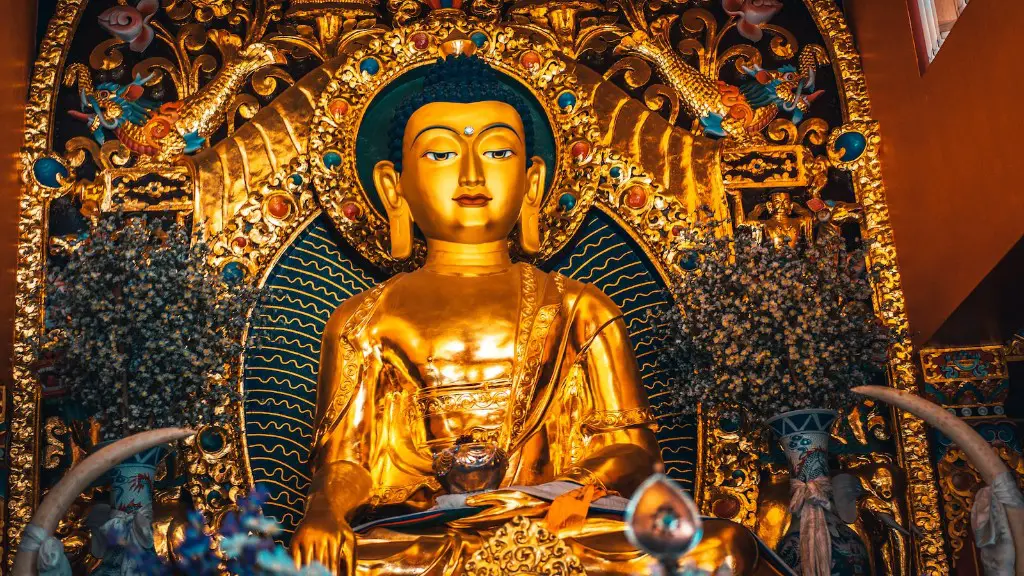Origins of Hinduism
Hinduism is one of the oldest and most complex religions in the world. It is estimated to have been around for over 3,000 years and has millions of followers across the globe. The exact origins of Hinduism are not known, but there is evidence to suggest that it began as early as the 2nd millennium BCE when a collection of religious traditions, beliefs, and practices emerged. The origins of Hinduism are deeply rooted in Indian society and the ancient cultures that once dominated the region.
The earliest records of Hinduism can be found in the Vedas, a set of sacred texts written in Sanskrit. The Vedas form a core part of Hindu belief and provide religious teachings and instructions for living. They include hymns, prayers, rituals, and philosophical discourse. The Rigveda is the oldest of the four Vedas and is thought to have been composed between 1500–1000 BCE. This ancient religious text contains information about the gods, festivals, and the rituals associated with them.
While the Vedas form the basis of Hinduism, the religion has also been shaped by other ancient faiths, including Buddhism and Jainism. This is what scholars refer to as the “Hindu Synthesis.” In this synthesis, Hinduism absorbs many of the ideas and practices of other religions into its own system. This combination often creates an elaborate set of beliefs and practices that are uniquely “Hindu.”
The traditional Hindu caste system is a prominent feature of Hinduism and has been in existence for centuries, though it is undergoing major changes in many parts of India. The caste system is based on social strata and occupation. Each group has specific duties, rights, privileges, and taboos. The Brahmins are the highest caste and are traditionally involved in activities related to knowledge and spirituality.
Hinduism is also strongly associated with some of the most ancient and esteemed festivals and rituals. These include Diwali and Holi, as well as various other devotional ceremonies. These rituals and events involve music, prayers, and offerings to deities.
Throughout its long history, Hinduism has experienced countless changes and periods of rebirth. Its adaptability has allowed it to remain relevant and influential in modern times and has helped it spread to other countries around the world.
Hinduism and Other Religions
Throughout its long history, Hinduism has had interactions with many other religions. The most significant of these are Buddhism and Jainism. It is believed that these two religions have influenced many of the beliefs and practices of Hinduism and have even been absorbed into it over time. This is one of the main factors behind the “Hindu Synthesis” that has developed over thousands of years.
Hinduism has also had a major influence on Eastern religions such as Buddhism, Sikhism, and Shintoism. It is even believed that some of its practices and philosophies were absorbed into these new systems. As a result, these religions share many similarities with each other.
Hinduism has also been profoundly affected by the various monotheistic faiths it encountered over its long history. These include Judaism, Christianity, and Islam. Each of these faiths has affected Hinduism in its own way, though the influence of Islam is especially noteworthy. The Islamic faith is believed to have had a significant impact on the Hindu caste system, as well as its beliefs on the afterlife and the status of women in society.
Modern Hinduism
Modern Hinduism has experienced many changes throughout its history, especially in the last few centuries. During the colonial period, Hindu beliefs and practices were impacted by British rule, as well as the presence of Christianity. This led to an emergence of more “modern” forms of Hinduism, many of which amalgamated elements of other beliefs and traditions.
One of the most prominent varieties of modern Hinduism is Neo-Hinduism. This form of Hinduism is largely inspired by western ideas and philosophies and has been influenced by the British Raj. It is characterized by a more universal approach to spirituality and a focus on social justice and social reform.
The rise of modern Hinduism has led to an increase in the popularity of Hinduism around the world. This has caused a new wave of Hindu immigrants to arrive in the United States, Europe, and other countries. As a result, Hinduism is now a major part of the religious landscape in many countries around the world.
Modern Hinduism and Politics
Modern Hinduism has been deeply impacted by Indian politics. The Hindu nationalist movement, propelled by the Bharatiya Janata Party (BJP), has become increasingly influential in India since the 1990s. This movement has sought to establish a Hindu identity, as well as redefine Hinduism on its own terms. It has become a major political force in Indian politics, even leading to the construction of a temple to honor the Hindu god Ram in the Hindu holy city of Ayodhya.
The Hindu nationalist movement has been largely successful in gaining adherents. This is due in part to its message of strong nationalism and its anti-Muslim rhetoric. The BJP has also been successful in appealing to young people, who are increasingly turning to Hinduism as a response to the challenges of their times.
Hinduism and Society
Hinduism has had a profound impact on Indian society. It has been integral in shaping the cultural landscape and has even been an influence in Indian literature, art, and music. The Hindu caste system has been an influential part of society and, though it is gradually changing, continues to have a significant impact.
Hinduism has impacted other religions in the country as well. For example, Buddhism and Jainism are deeply influenced by Hinduism. This is evident in their rituals, beliefs, and spiritual practices. Hindu beliefs and ideas have also spread to other parts of the world, such as Southeast Asia, where Buddhism is widespread.
Hinduism and Gender Equality
Hinduism has long been criticized for its perceived lack of gender equality. Traditionally, women have been viewed as lesser than men and have been excluded from many aspects of Hinduism, such as religious ceremonies and educational opportunities.
However, in recent years, feminist and women’s rights activists have worked to challenge these stereotypes. They have pointed to the presence of female deities in Hinduism, as well as the roles played by powerful women in Indian history.
Today, Hinduism is undergoing a period of reform and is working to promote gender equality. Recent changes include the admission of women into temple sanctuaries and the introduction of laws to protect women from discrimination. The Hindu Equal Rights Bill, which is attempting to provide equal rights and protections to women, is another instance of this.
Hinduism and its Future
Despite its long history, Hinduism is a living and ever-evolving religion. It continues to grow and develop, adapting to the needs of its adherents. In the coming years, it is likely to experience further changes, both due to internal forces and the external influences of other religions and cultures.
As global society continues to become more interconnected, it is increasingly likely that Hinduism will spread even further across the world. This could result in a more diverse and inclusive form of Hinduism, as well as a greater understanding of the religion for those living in different parts of the world.
Hinduism and Science
In recent years, Hinduism has begun to embrace modern science. This has resulted in an increasing trend towards evidence-based beliefs and practices. For example, some Hindu scholars have used scientific evidence to argue that yoga is beneficial for physical and mental health.
Hinduism has also incorporated aspects of modern technology into its practices. For example, many temples have begun using virtual tours and online portals to offer religious services. This has allowed Hinduism to reach an even wider audience.
In addition, increasing numbers of Hindus have begun to explore the relationship between their religious beliefs and the findings of modern science. Hinduism encourages its adherents to pursue knowledge and seek the truth, and for many believers, this means engaging with the sciences in an effort to reconcile the two.
Hinduism and Ecology
Hinduism has traditionally had a strong connection to nature and the environment. Many Hindu beliefs and practices emphasize the importance of living in harmony with nature, and this is reflected in the way Hindus live their lives. This includes a reverence for animals and a respect for nature, often displayed through the adoption of vegetarian diets and the use of eco-friendly practices.
The more modern forms of Hinduism seek to cultivate an even stronger connection to nature. Ecological awareness is becoming increasingly prominent in Hinduism, and many adherents are rejecting consumer-driven lifestyles in favor of more sustainable practices.
In recent years, Hinduism has also become more vocal in advocating for ecological causes. Hindu philosophers have pointed to the religion’s long history of deep reverence for nature, and have argued that protecting the environment should be a central tenet of Hinduism. As a result, Hindu organizations have begun to focus on conservation efforts, such as reforestation, protecting animal habitats, and using renewable energy sources.

